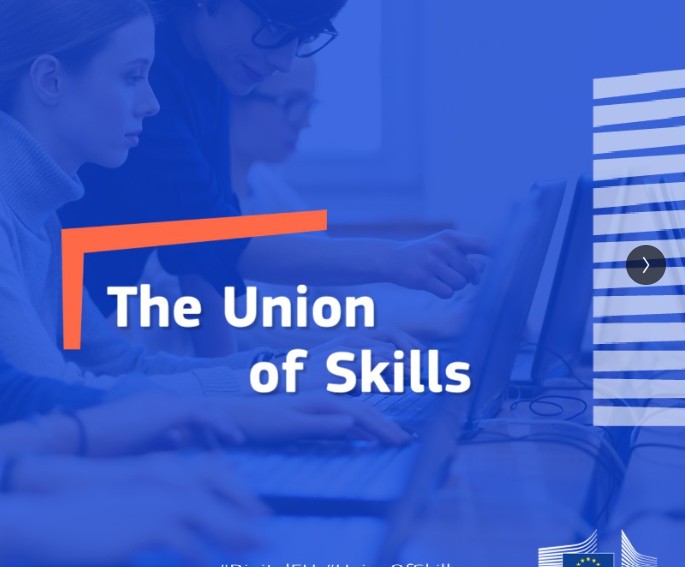06/03/2025

The European Commission has launched the Union of Skills, a strategic initiative designed to tackle labour shortages, skills mismatches, and workforce transformation in response to what experts call the “great restructuring.” This initiative aims to align skills development with economic and societal needs, ensuring that Europe’s workforce remains competitive and adaptable in a rapidly changing labour market.
One of the Union of Skills’ core objectives is to measure and address skills mismatches across sectors and regions. Skills mismatches occur when workers’ competencies do not align with job market demands, either due to evolving industry needs or insufficient training opportunities. The initiative seeks to bridge these gaps by improving skills anticipation mechanisms and fostering collaboration between businesses, training providers, and policymakers to ensure that education systems better reflect labour market realities.
The “great restructuring” of Europe’s workforce—driven by digitalization, the green transition, and demographic shifts—has left many industries struggling to find qualified talent. The Union of Skills is set to fill these skill gaps through targeted investments in upskilling and reskilling programs, ensuring that workers can transition seamlessly into emerging roles.
Artificial Intelligence (AI) is reshaping the job market, both by automating tasks and creating new employment opportunities. Recognizing this, the Union of Skills introduces an analysis framework for training in the field of AI, which evaluates the effectiveness of existing educational programs and identifies gaps in AI-related competencies. This framework will serve as a guide for designing training programs that equip workers with AI skills essential for the future job market.
To tackle skills shortages effectively, the Union of Skills is curating a selection of best practices from across Europe. These case studies highlight successful strategies that have helped industries and regions combat workforce challenges, ranging from apprenticeships and dual education systems to sector-specific training initiatives. By sharing these best practices, the initiative encourages replication and scaling of effective models across EU member states.
For the TRAILS project, the Union of Skills presents a valuable framework for strengthening workforce development. The initiative’s emphasis on measuring skills mismatches, addressing training needs in AI, and identifying scalable solutions aligns closely with TRAILS’ mission to bridge skills gaps and drive labour market resilience. By integrating these insights, TRAILS can contribute to a more dynamic and responsive European workforce prepared for the challenges of tomorrow.
The Union of Skills marks a significant step towards a more coordinated and future-proof skills strategy for Europe, ensuring that both individuals and industries can thrive in an era of rapid transformation.